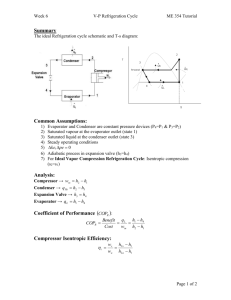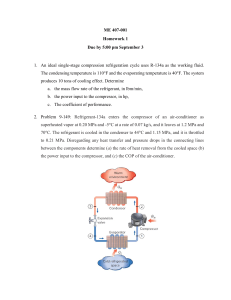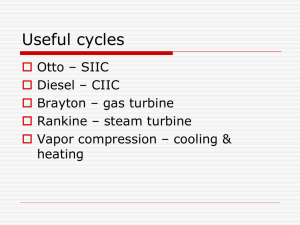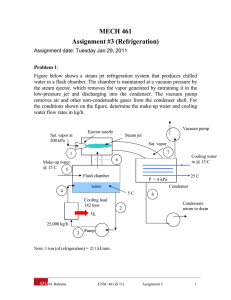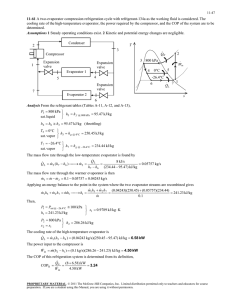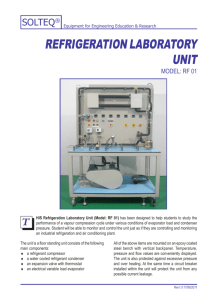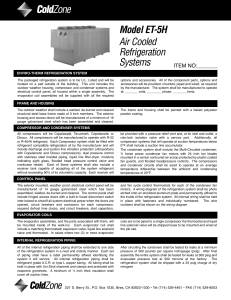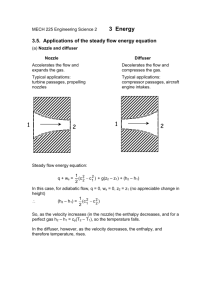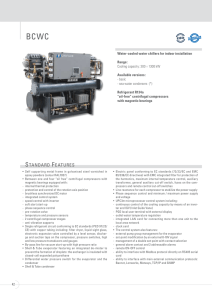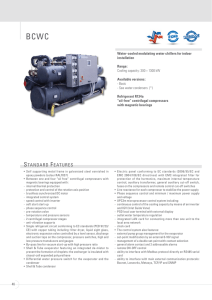Vapor-Compression Refrigeration Cycle Analysis
advertisement
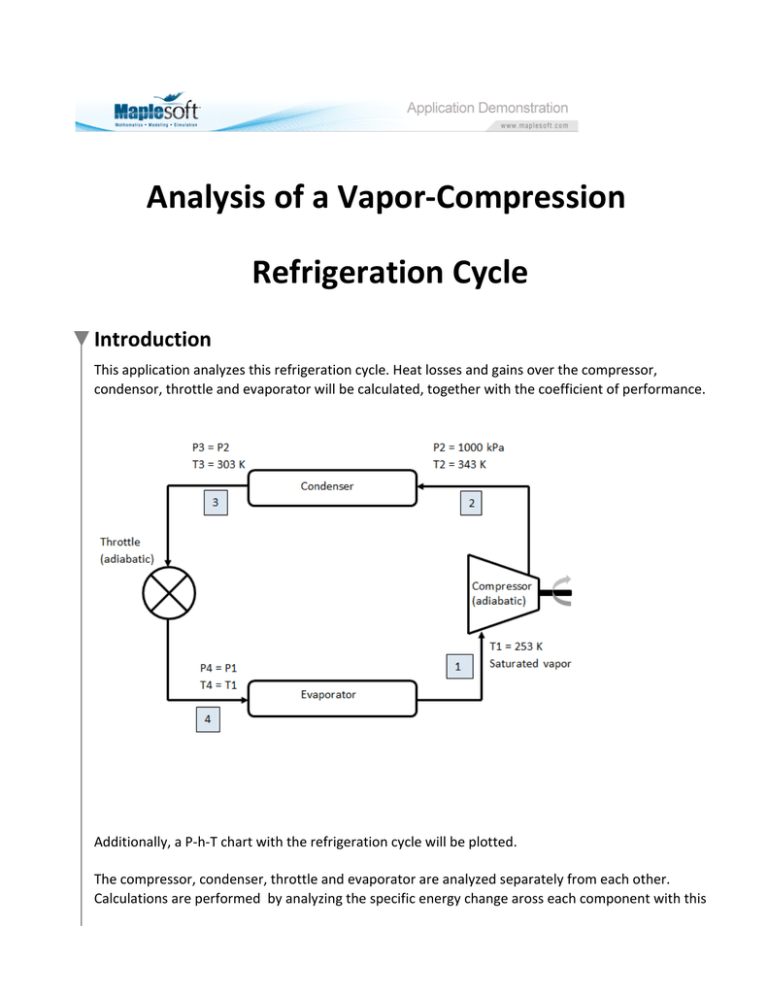
Analysis of a Vapor-Compression Refrigeration Cycle Introduction This application analyzes this refrigeration cycle. Heat losses and gains over the compressor, condensor, throttle and evaporator will be calculated, together with the coefficient of performance. Additionally, a P-h-T chart with the refrigeration cycle will be plotted. The compressor, condenser, throttle and evaporator are analyzed separately from each other. Calculations are performed by analyzing the specific energy change aross each component with this equation (a statement of the conservation of energy), where w is the work done by the component q is the heat transferred to the system Thermophysical properties are provided by the open source C++ CoolProp library (coolprop.org). Once compiled and linked to Maple, CoolProp lets you access the properties of pure fluids, pseudopure fluids, and humid air with a function call. This application comes with a CoolProp DLL for 64-bit Windows. You may need to compile CoolProp on your own computing environment for a compatible library. While this application uses R134a as the refrigerant, you can investigate the effect of other fluids by replacing references to R134a with your preferred fluid (such as R744). Load the CoolProp DLL > Ensure the path to the DLL is correctly referenced by define_external() > Valid calling sequences for Props() are documented at coolprop.org Compressor Consider the energy flows in the compressor. For an adiabatic process, q = 0. Also Therefore the enthalpy at points 1 and 2 are (in kJ kg-1) > (3.1) The work done by the compressor (w) is > (3.2) > (3.3) > Condenser For the condenser, w = 0, q= > (4.1) > (4.2) Throttle For the throttle, q = 0, w = 0, Enthalpy at h4 > (5.1) Saturation pressure of R134a at 253 K > (5.2) Quality at P = press4 and H = h4 > 0.319491031236869172 Evaporator For the evaporator, w = 0, (5.3) Heat extracted by evaporator > (6.1) Coefficient of Performance > 2.217130807 Plot the Refrigeration Cycle on a P-h-T Chart > > > > > > > > > (7.1)
